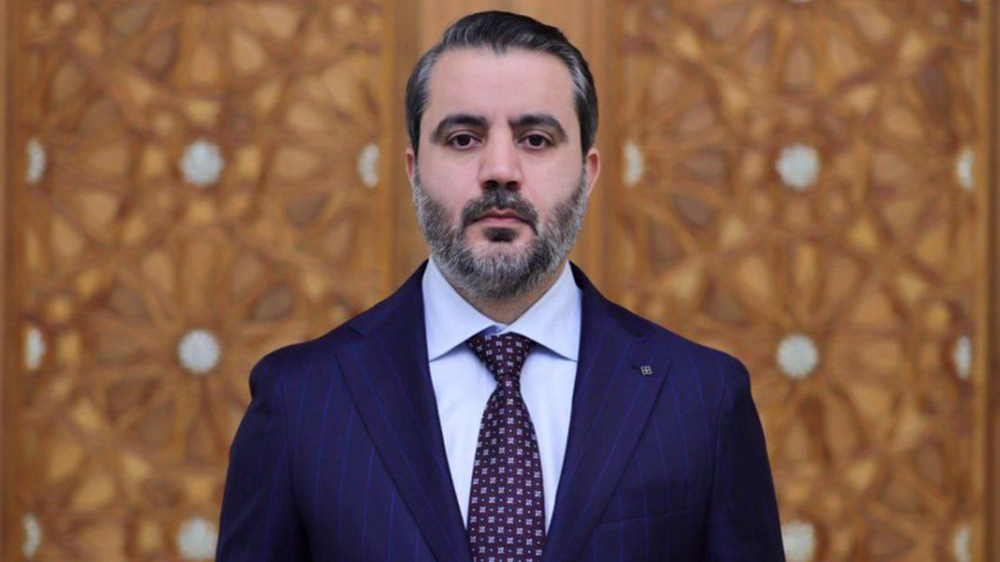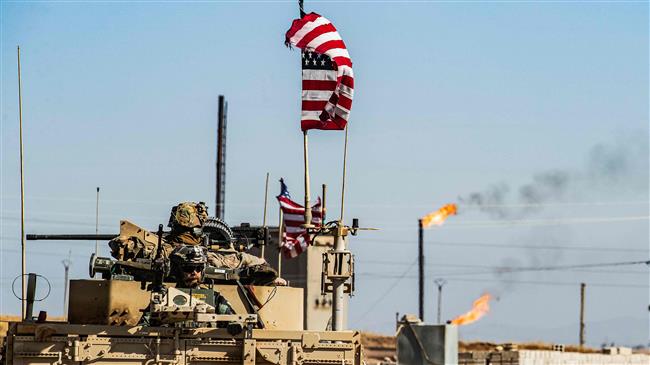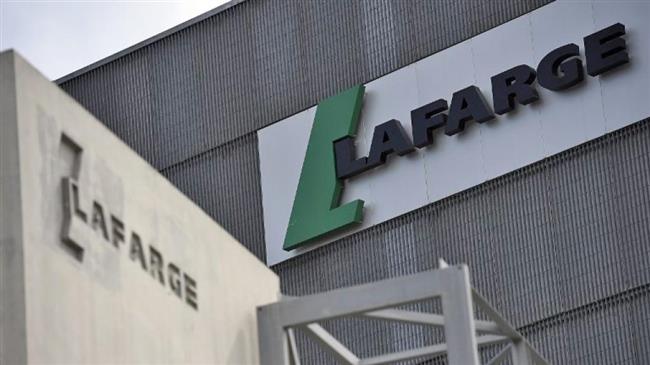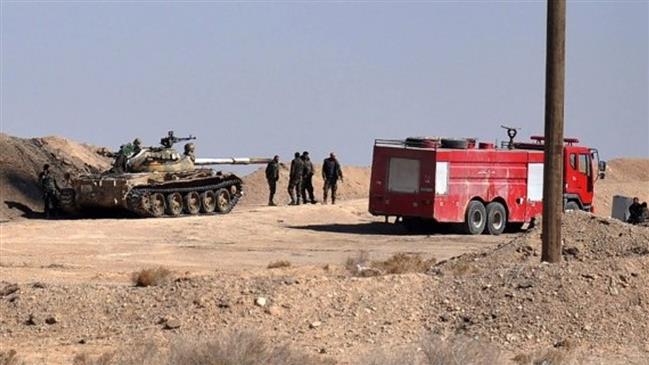Russia deploys military helicopters to protect Syria-Turkey border patrols
Russia has deployed military helicopters to assist and protect its military police patrolling along Syria's border with Turkey.
Russia's Interfax news agency reported the deployment on Friday, citing a military pilot as saying that flights would be conducted on a daily basis in an altitude of 50-60 meters along several patrol routes.
Turkish and Russian troops have been engaged in joint patrols in northeastern Syria in a bid to verify the withdrawal of Kurdish militants from an area bordering Turkey.
Last month, an agreement was reached between Moscow and Ankara in Sochi on the parameters of a “safe zone,” an area void of Kurdish forces which Ankara regards as terrorists, to be drawn 30 kilometers deep into Syria from the Turkish border.
The Kurdish-led Syrian Democratic Forces (SDF) were consequently given 150 hours to pull out troops from the region. The Kurds announced their complete withdrawal from the border area on Sunday.
Turkey has in response halted its military operation, which it launched into northern Syrian against US-aligned Kurdish forces on October 9. Sporadic clashes have been reported in the front line since.
Ankara launched the long-planned operation after Washington effectively granted the military operation a green light by calling for the withdrawal of US troops from northeastern Syria.
The SDF forces ultimately turned to Damascus for protection and Syrian troops began deploying in northeastern Syria to halt further Turkish advances.
Numerous assaults on Syrian troops by Turkish forces have been reported thus far.
On Thursday, al-Masdar news agency cited a Syrian military source as saying that several tank battalions had been deployed in Hasakah's Tal Tam district and the town of Ayn Issa north of Raqqa, reinforcing Syrian troops in areas where Turkish forces had previously sought to reach.
Al-Masdar described the deployments as a probable prelude to future clashes between Ankara and Damascus.
Pentagon 'perplexed' by Trump's Syria strategy
Last month, US President Donald Trump backtracked on earlier orders to withdraw all troops from northeastern Syria, saying that the soldiers would remain there to "secure" the oilfields.
Trump has even said that US appropriation of the oil fields could be a fair “reimbursement” for Washington's military deployment in the region.
Last week, the Pentagon further raised international concern when it threatened to use “military force” against any party, including the Syrian government and its allies, seeking to gain control of Syrian oilfields.
On Thursday, however, the Pentagon sought to dismiss some of those concerns, claiming that US troops were in Syria solely to defeat the Daesh Takfiri terrorists in partnership with the Kurdish-led Syrian Democratic Forces (SDF) and that “deconfliction channels” could evade clashes with Damascus-aligned troops.
Oil revenues would only be used by the Kurdish forces, Pentagon spokesman Jonathan Hoffman said.
The claims were, however, doubted by many observers.
On Friday, The Guardian, reported that Trump's strategy in Syria had perplexed Pentagon officials as they "struggle to explain" the mission of up to a thousand troops in Syria.
The paper highlighted that the Pentagon's Thursday statement regarding oil revenue going exclusively to Kurdish forces "contradict the president."
On Thursday, American news publication Foreign Policy described Trump's mission regarding Syria's oil fields to be seeking "murky goals" including weakening Syria's government and competing for regional influence.
“This region is agricultural and oil rich, and that created leverage with Assad and Russia,” said Melissa Dalton, a senior fellow at the Center for Strategic and International Studies speaking to FP, referring to the Syrian president.
“If the actors on the ground maintain control over these resources, that would strengthen their hand in negotiations,” she added.
FP further highlighted that the troops recently deployed to Deir al-Zawr in northeastern Syria reinforced the existing troops in Tanf in countering what Washington sees as "Iranian influence" in the region.
‘All wars have rules. All of those rules have been broken’ by Israel
VIDEO | Report flags India’s violation of rights of Rohingya detainees
Turkey's foreign minister meets Syria's de facto leader in Damascus
'Next to impossible' to rescue patients from Gaza's Kamal Adwan Hospital: Director
VIDEO | Vietnam current prosperity
Report blames gasoil exports for shortage at Iranian power plants
VIDEO | Hind Rajab Foundation names Israeli war criminals vacationing after Gaza genocide
VIDEO | Australians rally for Gaza ahead of Christmas festivities


















 This makes it easy to access the Press TV website
This makes it easy to access the Press TV website